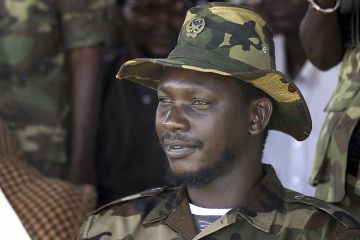
THE HAGUE (Robert Atcheson) – When Thomas Lubanga Dyilo was convicted and sentenced on 14 March 2012 for conscripting, enlisting and using child soldiers many hailed the decision as historic. Historic because it was the first conviction for the relatively new International Criminal Court, but also because it meant the healing process could begin for the victims who survived the atrocities committed by Lubanga and his followers. However, not all of Lubanga’s victims were able to be included as ‘victims’ during his trial, namely many of the child soldiers he used during his armed conflicts. This is because of the current wording of the Rome Statute, which only criminalises the use of child soldiers under the age of 15. This meant Lubanga escaped punishment for the child soldiers he used who were between the ages of 15 and 18, while at the same time denying justice to those child soldiers who had to suffer the horrors of armed conflict and other atrocities at the hands of Lubanga.
Globally, approximately 250,000 children are currently being used as child soldiers (Peace Direct, Child Soldiers – 2012). Africa alone has more than 120,000 child soldiers, 40% of whom are girls. These children participate directly and indirectly, voluntarily and involuntarily in armed conflicts for State and non-State actors. In countries where child soldiers are used, between 10%-68% of the population lives below the poverty line.
Since the 1990s, armed conflicts between governmental and rebel forces, and among rebel forces inter se have been pervasive throughout the Democratic Republic of the Congo particularly, in Ituri. Lubanga established the Union of Congolese Patriots (‘UPC’) in 2000, becoming its’ President in 2002. The UPC’s goal was to dominate the Hema ethnic group and use them to engage in armed conflict against non-Hema people, mainly in Ituri. The UPC engaged in widespread sexual violence, torture and mutilation, and caused the deaths of an estimated three million people.
According to Human Rights Watch, at the height of the conflict in 2003, the UPC had approximately 15,000 soldiers of which 40% were estimated to be children under the age of 18. The child soldiers (boys and girls) were engaged in all aspects of the conflicts from front-line combat to supporting roles, and were themselves subjected to excessive punishment, and discrimination. Additionally, the girl soldiers were repeatedly raped by their commanders, adult soldiers, and boy soldiers.
 Lubanga was convicted on 14 March 2012, of the war crimes of conscripting, enlisting and using child soldiers, receiving a sentence of 14 years imprisonment. However, the court was unable to provide justice to all of Lubanga’s child soldiers due to the outdated provisions in the Rome Statute. The current wording states that a person can only be convicted of child soldiering if the child is under the age of 15 at the time of the act. The choice of drawing a bright line at 15 was, at the time the Rome Statute was written, consistent with the major international conventions, such as the Convention on the Rights of the Child and Additional Protocol I to the Geneva Conventions.
Lubanga was convicted on 14 March 2012, of the war crimes of conscripting, enlisting and using child soldiers, receiving a sentence of 14 years imprisonment. However, the court was unable to provide justice to all of Lubanga’s child soldiers due to the outdated provisions in the Rome Statute. The current wording states that a person can only be convicted of child soldiering if the child is under the age of 15 at the time of the act. The choice of drawing a bright line at 15 was, at the time the Rome Statute was written, consistent with the major international conventions, such as the Convention on the Rights of the Child and Additional Protocol I to the Geneva Conventions.
Nevertheless, a recent trend has emerged within the international community supporting an unequivocal straight-eighteen policy, whereby State and non-State actors are prohibited from recruiting and/or using persons under the age of eighteen. For example, Optional Protocol #1 to the Convention on the Rights of the Child and the African Charter on the Rights and Welfare of the Child prohibits the recruitment and use of any person under 18 in armed conflict…
